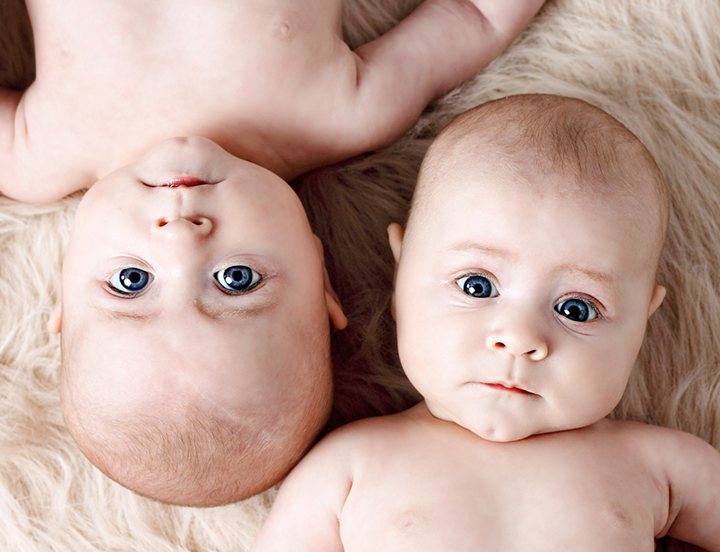
Embryo donation is defined as the combination of oocyte donatioın and sperm donation IVF treatment. Where it is given for the purpose of implantation, the donation is followed by the placement of those embryos into the recipient woman’s uterus to facilitate pregnancy and childbirth in the recipient.
Donated embryo origin
Embryos for embryo donation may only be created specifically for embryo transfer using donor eggs and donor sperm.
Anonymity of the donor
Embryo donation is handled on an anonymous basis (donor and recipient parties are not known to each other.
Process
Both donor and recipient have to be screened to ensure success the embryo donation treatment.
Embryo donor screening includes:
- Optimal age of the donor is 20-29 years,
- Genetic screening for family history, hereditary diseases and normal karyotype,
- Genetic testing for blood type, cystic fibrosis and hemoglobinopathies,
- Serological examination on hepatitis B and C, syphilis, HIV before the embryos are thawed and transferred,
- Psychological and mental screening.
Embryo recipient screening includes:
- Ultrasound examination of uterus lining,
- confirmation from a gynecologist that pregnancy is not a contraindicated
- Serological examination on HIV, hepatitis B and C, syphilis and some other serological examination for specific infectious diseases interfering with the embryo growth
- Once all parties agree, the embryo is transferred to the adoptive mother’s clinic for an embryo transfer.
Embryo donation vs. embryo adoption
Some writers use the term “embryo donation” to refer strictly to anonymous embryo donation, and “embryo adoption” to refer to the open process. Others use the terms synonymously because regardless of whether the arrangement is open or anonymous, the donation of embryos and a clinical assisted reproduction procedure is involved, and the recipient couple is preparing to raise a child not genetically related to them. Lawyers who assist couples who are trying to acquire an embryo state the term “embryo adoption” is a misnomer because the transfer of an embryo is handled as property transfer. Abortion rights advocates, advocates of embryonic stem cell research, and members of the fertility industry object to referring to the transfer as an “adoption” because they feel it gives an embryo the same status as a child. Most doctors describe the process as “embryo donation”.
The resulting child is considered the child of the woman who carries it and gives birth, and not the child of the donor. This is the same principle as is followed in egg donation or sperm donation. Most often, the embryos are donated after the woman for whom they were originally created has successfully carried one or more pregnancies to term.
Laws The birth mother becomes a child’s legal mother and her husband is a child’s legal father, if she has any.
Embryo donation is performed in these countries: Canada, UK, France, Spain, Italy, Northern Cyprus, Australia, Belgium, India, Greece, Singapore, Argentine, Colombia, the Czech Republic, Japan, the Netherlands, Uruguay, Romania, Portugal, Venezuela, Hong Kong, New Zealand, Russia, Singapore, and Finland. In the US, all 50 states and the District of Columbia permit living embryo adoption and implantation.
In these countries, embryo donation is illegal: Algeria, Austria, Bahrain, China, Denmark, Germany, Egypt, Israel, Italy, Latvia, Lithuania, Norway, Pakistan, Philippines, Qatar, Oman, Saudi Arabia, Slovenia, Sweden, Switzerland, Syria, Taiwan, Tajikistan, Tunisia, Turkey, United Arab Emirates and Yemen.
Success or failure factors
Embryo donation is recommended in these cases:
- Patients have genetic disease affecting direct reproduction,
- Male and female infertility which reduces the chance of success using own sperms and/or oocytes,
- Previous failed treatments,
- Single or post-menopausal patient
Complications
There may occur pregnancy complications, especially in cases where multiple pregnancy occurs – multiple gestations raise the risk of preterm births; low-birth-weight babies, with the possibility of death in very premature infants; long-term health problems; and pregnancy complications, which include pre-eclampsia, gestational diabetes, and Caesarean section.
With regard to psychological side, no psychological affects to all parties involved have been observed.
Prognosis
Average pregnancy success for embryo donation is 35% and up to 70% with 3 embryo transfers. This statistic varies by program and clinic, but is about the same as, if not a bit better than, for a fresh cycle of IVF. The chance of pregnancy with donor egg embryos still have a 2-5% greater survival rate than embryos from infertile women when compared by morphology score.
Pregnancy success rate is affected by many factors. Very important is a number of embryos available, the quality of the embryos frozen, age of the egg donor and overall health of the embryo recipient. Not so much, but still important is a stage of growth when the embryos were frozen and technique used to freezing and thawing. Possible effect can have age of the male producing the sperm. On the other hand, the duration of embryo cryoconservation has probably no effect on subsequent pregnancy.
